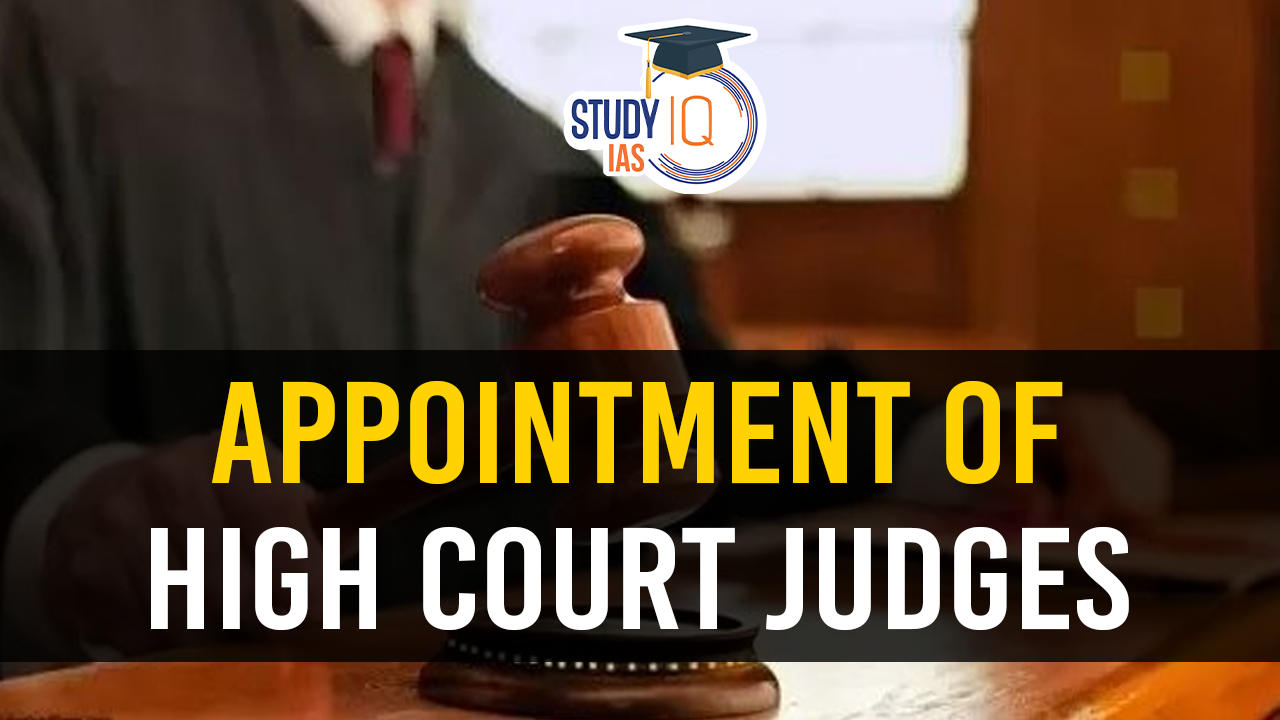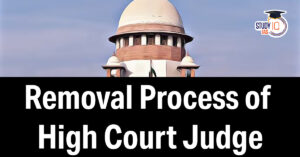Table of Contents
The Supreme Court Collegium has recommended the appointment of Madras High Court judge Justice D. Krishnakumar as the Manipur High Court Chief Justice.
Appointment of High Court Judges
- Article 217: Every Judge of a High Court shall be appointed by the President by warrant under his hand and seal.
- This is done after consultation with the Chief Justice of India (CJI), the Governor of the State and the Chief Justice of the High Court.
- Qualifications: (Article-217)
- Citizen of India
- He/she should have held Judicial office for at least 10 years.
- They should have for at least 10 years been an advocate of a High Court.
| Fact |
|
Procedure of Appointment of HC Judges
- Initiation: The proposals of names for appointment as a judge in the High Court are initiated by the Chief justice of a concerned High Court.
- High Court Collegium:
- The Chief Justice of the High Court consults two senior most judges of the High Court before proposing such names.
- Scrutiny by Government:
- Recommendations of HC Collegium are sent to the Governor, Chief Minister and the CJI.
- The Governor, based on the advice of the Chief Minister, sends the proposal to the Minister of Law and Justice at the Centre.
- The Union Law Ministry conducts a background check and sends the recommendation to CJI to consider it with the rest of the SC collegium.
Supreme court Collegium
- Composition of collegium: It consists of CJI and two senior most judges of the Supreme Court.
- Decision of collegium: The Supreme Court collegium then considers such names recommended by the High Court collegium.
- SC collegium has the power to reject the names recommended by the High Court collegium.
- Decision of Union government:
- After due deliberations on such names, the union cabinet advises the President to appoint such persons as judges in the High Court.
| Did You Know? |
|


 Transfer and Removal Process for High Co...
Transfer and Removal Process for High Co...
 National Judicial Appointments Commissio...
National Judicial Appointments Commissio...
 Draft Digital Personal Data Protection R...
Draft Digital Personal Data Protection R...





















